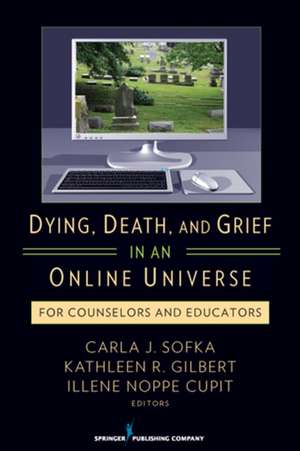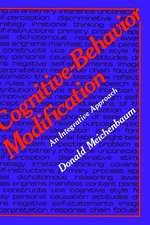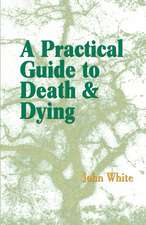Dying, Death, and Grief in an Online Universe: For Counselors and Educators
Autor Carla Sofka, Kathleen Gilbert, Illene Noppeen Limba Engleză Paperback – 31 ian 2012
Preț: 408.01 lei
Preț vechi: 429.48 lei
-5% Nou
78.07€ • 81.52$ • 64.47£
Carte tipărită la comandă
Livrare economică 15-29 aprilie
Specificații
ISBN-10: 082610732X
Pagini: 290
Dimensiuni: 154 x 229 x 15 mm
Greutate: 0.39 kg
Ediția:New.
Editura: Springer
Notă biografică
Carla J. Sofka, PhD, is Associate Professor of Social Work, Sienna College, Loudonville, NY. Her previous positions include Assistant Professorships in the field of thanatology at the Institute of Life and Death Education and Counseling, Taipei, Taiwan, Skidmore College, and Washington University. Dr. Sofka has published in Journal of Mental Health Counseling, Generations, Death Studies, and The Journal of Personal and Interpersonal Loss. She has contributed chapters to numerous thanatology texts and is a frequent presenter during the ADEC conferences including her most recent (2009) panel discussion with Drs. Worden, Doka, and Hoy (luminaries in the field). She is a director of the Baccalaureate Social Work Program, a member of the ADEC and NYS Social Work Education Association, and Associate Editor of Death Studies.
||Ilene C. Noppe, PhD, is Professor, Human Development/Psychology/Women's Studies, University of Wisconsin-Green Bay, Wisconsin. In addition to her contribution to Adolescent Encounters with Death, Handbook of Thanatology, Living with the Dying, and Child Development, her many articles have appeared in such journals as Journal of Mental Health Counseling, The Forum, and Death Studies. She is a frequent presenter at ADEC.
|Kathleen R. Gilbert, PhD, CFLE, FT, is Associate Professor of Applied Health Science and Director of Undergraduate Education, Indiana University, Bloomington, Indiana. She has contributed to the International Encyclopedia of Marriage and Family Relationships, 2/e; Annual Edition: The Family; and well over 70 articles appearing in thanatology as well as educational, family studies, and related mental health journals. Dr. Gilbert is current President of ADEC, past President of the Indiana Council on Family Relations, and on the Editorial Board of Traumatology, Family Science Review, and Journal of Qualitative and Ethnographic Research; Guest Editor of Illness, Crisis and Loss, and a reviewer for Omega, Death Studies, and JOGNN
Textul de pe ultima copertă
"
""Historically we have always employed our foremost technology in the service of the dead. We have used whatever we had at our disposal to mourn, to support, to share memories and to tell stories. Carla J. Sofka, Illene Noppe Cupit, and Kathleen R. Gilbert? reaffirm that principle reminding us that this new digital world both offers dramatic technologies and creates considerable opportunities to deal with dying, death, and grief. The editors are extraordinarily sensitive to the multiple ways that this new technology has impacted upon the death system or the ways that a society organizes behavior around dying and death. "Dying, Death, and Grief in an Online Universe" is bound to be a classic."" Kenneth J Doka, PhD
Professor, The College of New Rochelle
Senior Consultant, The Hospice Foundation of America
Modern communication technology has profoundly influenced societal practices and views about dying, death, and loss. This text, written for death educators, clinicians, researchers, and students of thanatology, provides current information about ""thanatechnology,"" the communication technology used in providing death education, grief counseling, and thantology research.
The book offers a broad overview of how the communication technology revolution affects individuals coping with end-of-life issues, death-related and non-death loss and grief, and implications of the ""digital divide"" between those who are knowledgeable about and have access to modern technology, and those who are not. It describes the proliferation of online support groups and social network sites to cope with loss, and mechanisms for the memorialization and commemoration of loss. It also highlights blogging as a mechanism for storytelling and SKYPE as a communication tool during times of loss and grief. The unique issue of disenfranchised grief experienced by online community members is also explored along with ethical issues. Appendices provide guidance regarding the online availability of different types of informational support, tools to evaluate the integrity of online resources, and ethical standards. Key Features:
Examines the ways in which modern communication technology has revolutionized societal practices and views about dying, death, and loss Offers time-tested strategies for providing death education online Addresses ethical issues related to availability and use of technology Explores the implications of the ""digital divide"" between technology and non-technology users in relation to issues of death and loss Analyzes how technology has shaped and changed thanatology research "
Descriere
This book] is an excellent resource for the diverse practitioners and educators who are involved in this nascent area."--Cruse Bereavement Care
This] book is innovative and timely, challenging the reader to think 'out of the box.' Sofka, Cupit, and Gilbert provide a framework to explore thanatology in an online universe while encouraging continuous research to adapt to this ever-changing digital world."--Death Studies
Historically we have always employed our foremost technology in the service of the dead. We have used whatever we had at our disposal to mourn, to support, to share memories and to tell stories. Carla J. Sofka, Illene Noppe Cupit, and Kathleen R. GilbertO reaffirm that principle reminding us that this new digital world both offers dramatic technologies and creates considerable opportunities to deal with dying, death, and grief. The editors are extraordinarily sensitive to the multiple ways that this new technology has impacted upon the death system or the ways that a society organizes behavior around dying and death. "Dying, Death, and Grief in an Online Universe" is bound to be a classic. Kenneth J Doka, PhD
Professor, The College of New Rochelle
Senior Consultant, The Hospice Foundation of America
Modern communication technology has profoundly influenced societal practices and views about dying, death, and loss. This text, written for death educators, clinicians, researchers, and students of thanatology, provides current information about "thanatechnology," the communication technology used in providing death education, grief counseling, and thantology research.
The book offers a broad overview of how the communication technology revolution affects individuals coping with end-of-life issues, death-related and non-death loss and grief, and implications of the "digital divide" between those who are knowledgeable about and have access to modern technology, and those who are not. It describes the proliferation of online support groups and social network sites to cope with loss, and mechanisms for the memorialization and commemoration of loss. It also highlights blogging as a mechanism for storytelling and SKYPE as a communication tool during times of loss and grief. The unique issue of disenfranchised grief experienced by online community members is also explored along with ethical issues. Appendices provide guidance regarding the online availability of different types of informational support, tools to evaluate the integrity of online resources, and ethical standards. Key Features:
Examines the ways in which modern communication technology has revolutionized societal practices and views about dying, death, and loss Offers time-tested strategies for providing death education online Addresses ethical issues related to availability and use of technology Explores the implications of the "digital divide" between technology and non-technology users in relation to issues of death and loss Analyzes how technology has shaped and changed thanatology research "















